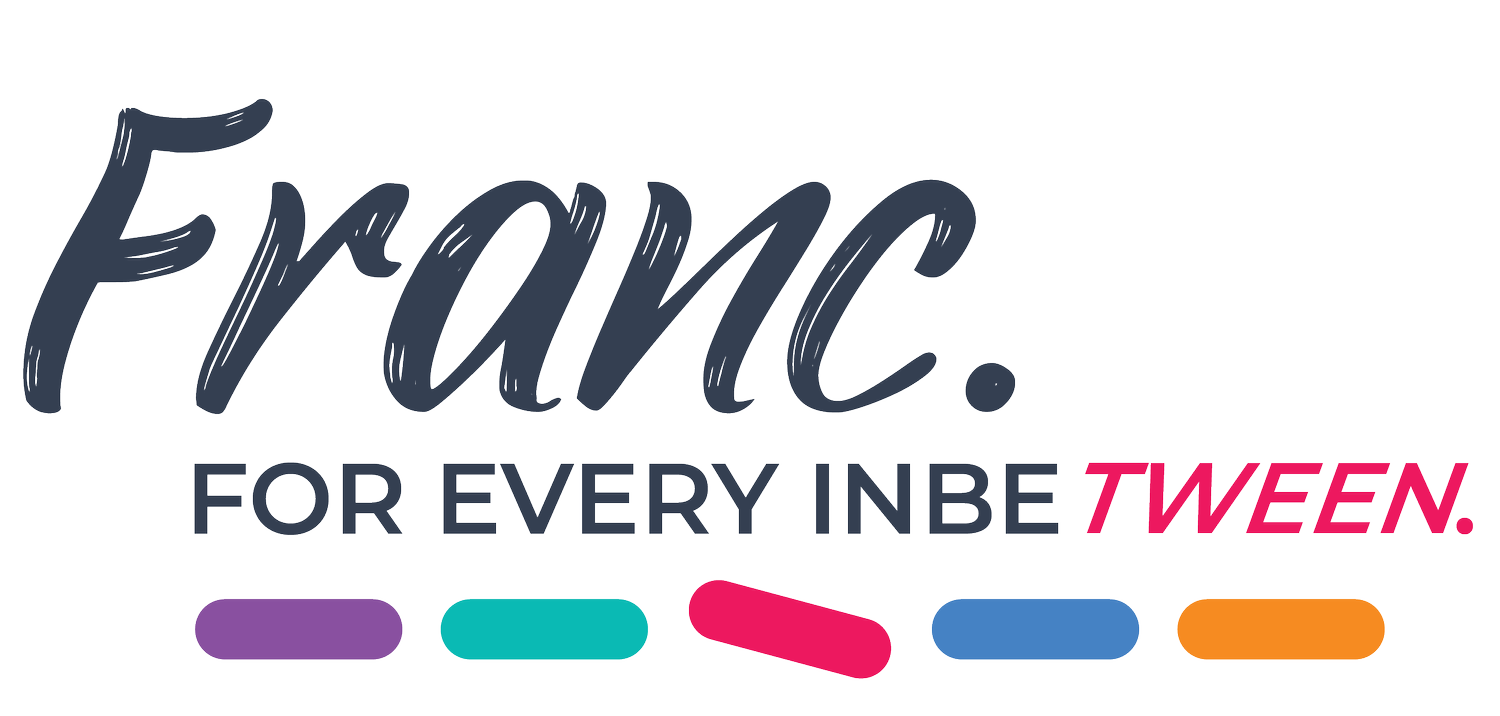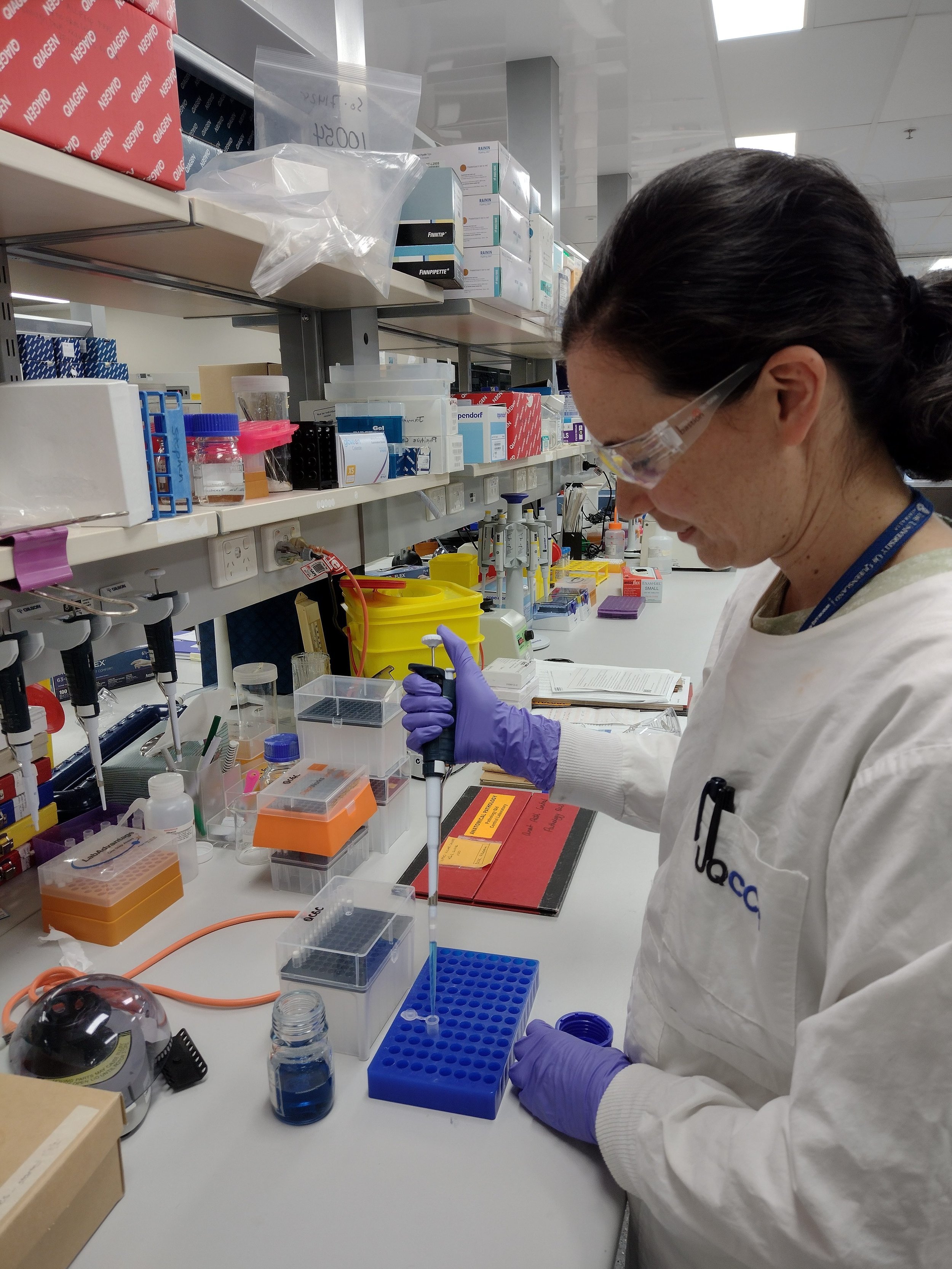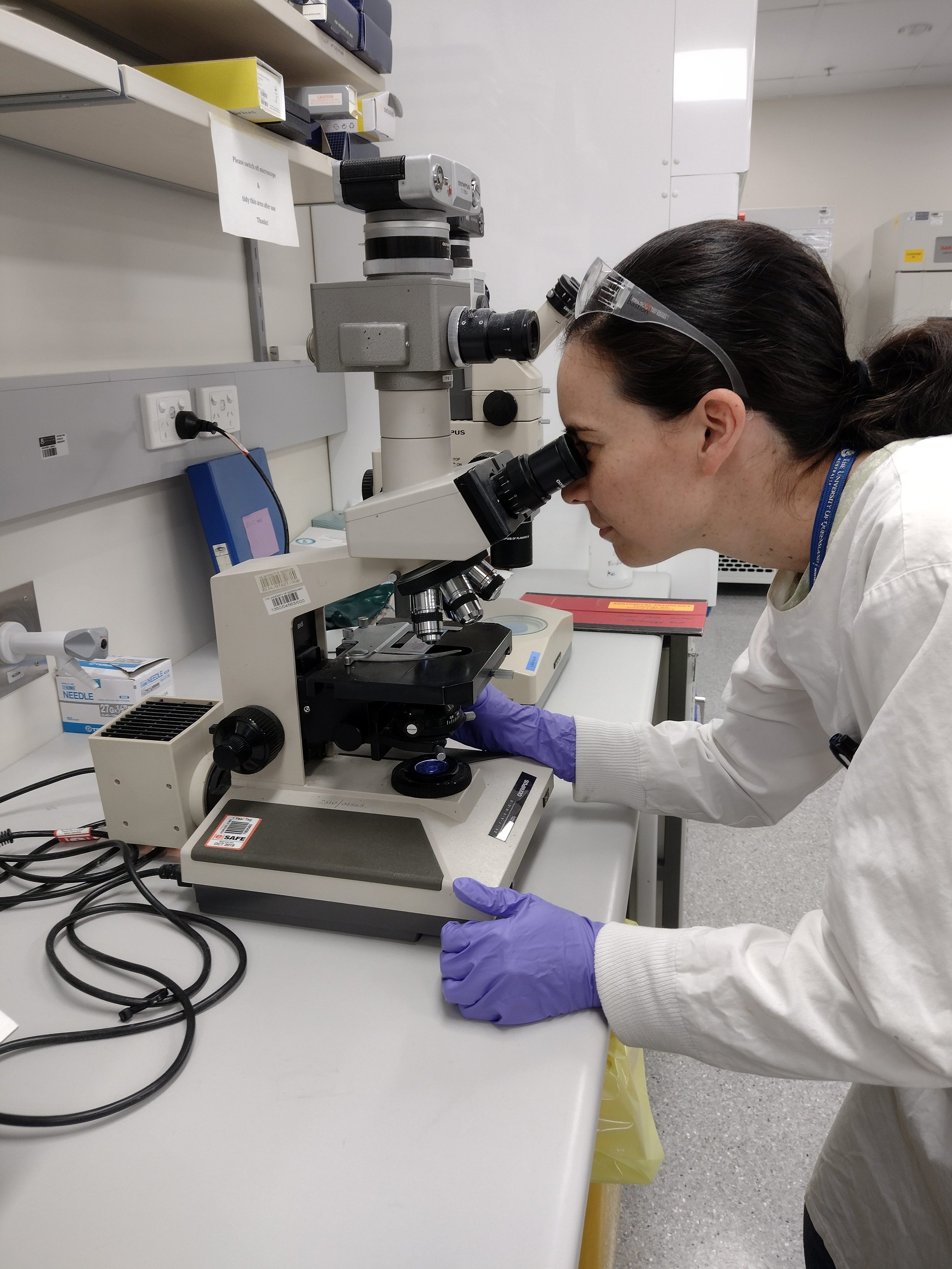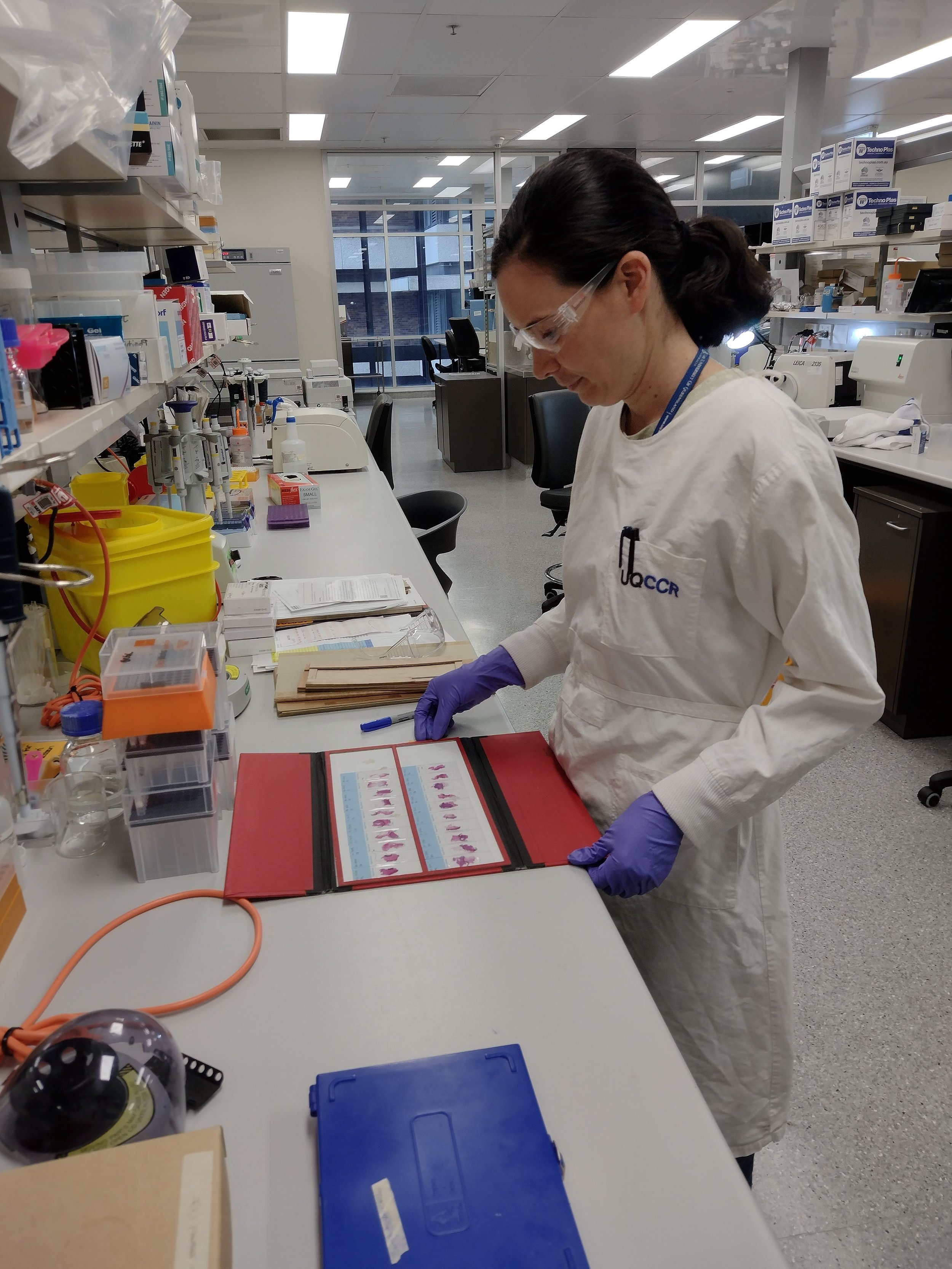Research Fellow: Dr Eva Baxter
Dr Eva Baxter. Eva grew up in The Netherlands and went to University in the UK before moving to Australia in 2013. She came to Brisbane on a 2-year contract but then met her husband and never left. She has been working at the Queensland Centre for Gynaecological Cancer Research at The University of Queensland since 2018 and is currently supported by the Cherish Women’s Cancer Foundation.
Dr Baxter’s research focuses on improving outcomes for women with gynaecological cancer.
What kind of research do you do? I work on gynaecological cancers (cancers of the female reproductive system). Every year, over 6,500 females in Australia are diagnosed with a gynaecological cancer. The team that I work in runs clinical trials and we collect tumour and blood samples from participants who agree to donate their samples for research. My job is to analyse these samples and see if we can find better and kinder ways to treat or diagnose gynaecological cancers.
Why did you choose to become a research scientist? I found science fascinating at school and have always been interested in how and why things work. I wasn’t satisfied with simply knowing what process could cause a particular disease or what drugs were given for specific conditions, I wanted to know why these processes occurred or why these drugs were given.
What was your career path to get to where you are today? After I finished school, I studied Biomedical Sciences at the University of Southampton in the UK. I then completed a PhD in oncology at the University of Edinburgh. By pure coincidence, someone in Edinburgh knew someone in Brisbane who was looking to recruit PhD graduates, so I sent them a copy of my CV. The team in Brisbane invited me for an interview. I was already planning on embarking on a round the world trip and so stopped in Brisbane along the way. I had never been to Australia before, but I loved it as soon as I arrived. I worked at QIMR Berghofer Medical Research Institute for several years before moving to The University of Queensland where I remain to this day.
What are the most important skills for a research scientist? Good communication skills are essential as without them, you wouldn’t be able to tell anyone about your work and why you do what you do. You can make exciting discoveries but if you can’t communicate them, then no one will ever know about them or benefit from them. I also think that attention to detail is critical. The biggest discoveries often come from making observations about the smallest things.
What are some of the challenges you face in your research? Lack of funding is the biggest challenge. There are always lots of good ideas and fascinating research questions to answer, but money is limited.
If you weren’t a research scientist, what would career would you choose? That is a very good question and I still have not found a satisfying answer. I don’t think there are many jobs that allow you to have so much intellectual freedom and provide so much food for thought.
How do you see your research impacting the world? I see a future where gynaecological cancers are diagnosed accurately and quickly and where treatment is tailored to a woman’s needs. This means being offered a treatment that safely and effectively cures the cancer without negatively impacting the rest of a woman’s life.
What advice would you give to someone who wants to become a research scientist? Find what you are passionate about. If you don’t know what you are passionate about then try volunteering or working for a short while in a research group just to see what it is like – if you don’t try something then you will never know whether you like it. And don’t be afraid of failure – it happens to all of us and I know it sounds corny, but it can push you to go in a direction that you had never thought of before.
What is your favourite part of being a research scientist? I love how my brain is stimulated all the time. I can also honestly say that I have never been bored as a research scientist.
What does your typical day look like? A typical day is pretty ordinary. I start the day checking emails for important messages that need to be actioned quickly. Then I will often spend most of the morning and early afternoon getting stuck into some work that requires brainpower such as writing a grant or analysing some data. Late afternoon is when my energy levels drop so I often spend this time doing smaller tasks over a cup of tea. There are times when I spend the whole day in the lab working with samples collected from clinical trial participants – on these days I admit that I ignore my emails as they are too distracting.
Franc’s Fast Five
What is your favourite thing to do when you're not working? I love going bushwalking with my husband. I find being out in nature very calming and a good way to reset my brain after a busy week at work.
Books or movies? Both – I’m a book lover by day and a movie lover at night.
Your dream vacation? I would love to explore South America one day, from Machu Picchu down to Torres del Paine National Park.
What is one thing you're really good at? Solving puzzles. Give me a good puzzle and a couple of cups of tea and I will quite happily not talk to anyone for hours.
Favourite comfort food? San Bei Ji, or Three Cup Chicken in English. Named after the three cups of sauces required (one each of soy sauce, rice wine and sesame oil), I highly recommend this dish to any non-vegetarian.





